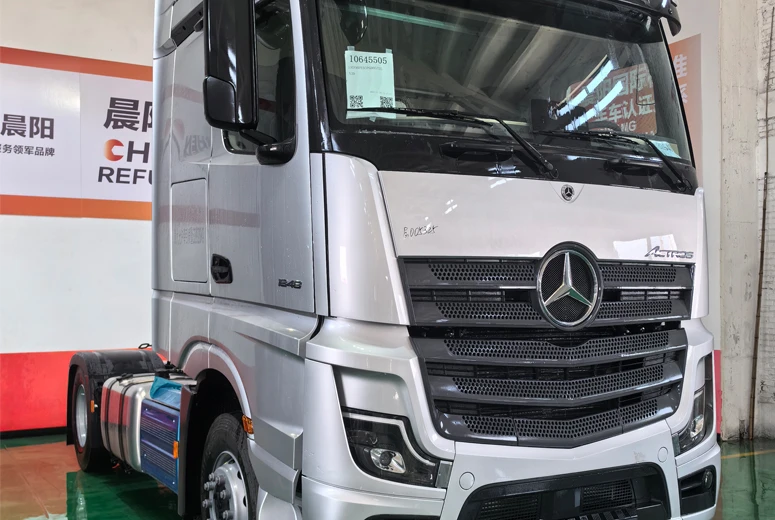Electric Tractors Revolutionizing Modern Farming Practices for Sustainable Agriculture Solutions
Electric Tractors and the Future of Farming A Sustainable Revolution
The agricultural sector is undergoing a significant transformation as the demand for more sustainable and efficient farming practices escalates. Among the myriad of innovations emerging in this field, electric tractors stand out as a groundbreaking development. As farmers increasingly look to reduce their carbon footprint and adhere to environmental regulations, electric tractors are becoming a viable alternative to traditional diesel-powered machinery. This article explores the benefits, challenges, and future of electric tractors in farming.
The Benefits of Electric Tractors
1. Environmental Impact One of the most compelling advantages of electric tractors is their potential to reduce greenhouse gas emissions. Traditional tractors powered by fossil fuels contribute significantly to air pollution and climate change. In contrast, electric tractors produce zero on-site emissions, making them far more environmentally friendly. The shift to electric power aligns with global efforts to combat climate change and promotes cleaner air for farming communities.
2. Operational Cost Savings Although the initial investment for electric tractors may be higher than that of their diesel counterparts, the long-term savings can be substantial. Electric tractors have significantly lower operational costs, primarily due to lower fuel prices and reduced maintenance requirements. Electric motors have fewer moving parts than internal combustion engines, which translates to less frequent repairs and lower maintenance costs. Over time, these savings can offset the initial purchase price, making electric tractors an economically viable option.
3. Noise Reduction Electric tractors operate much more quietly than traditional tractors. This reduction in noise pollution creates a more pleasant working environment for farmers and helps to maintain peace in rural communities. The quieter operation is particularly beneficial for operations near residential areas, allowing farmers to work at any time of day without disturbing their neighbors.
4. Technological Advancements and Automation The rise of electric tractors coincides with advancements in agricultural technology. Many electric tractors are designed with modern features such as precision farming tools, GPS navigation, and autonomous driving capabilities. These technologies enhance operational efficiency and allow farmers to optimize their operations, leading to higher crop yields and better resource management.
Challenges Facing Electric Tractors
electric tractors farming

While the benefits of electric tractors are significant, several challenges must be addressed for widespread adoption
1. Charging Infrastructure The availability of charging stations is a crucial factor in the transition to electric tractors. Unlike diesel-powered tractors, which can be refueled quickly at countless stations, electric tractors require dedicated charging infrastructure. Farmers need assurances that they can charge their tractors conveniently and efficiently while on the field or at their operations.
2. Battery Technology The current limitations of battery technology also pose a challenge. Electric tractors rely on large battery packs, and while advancements are being made in battery efficiency and capacity, concerns remain regarding range and performance, particularly on larger farms that require lengthy operation times. Further innovation is needed to enhance battery life and reduce charging times.
3. Initial Investment The upfront cost of electric tractors can deter many farmers from making the switch. While operational savings may be realized in the long run, the initial investment can be prohibitive, especially for small to medium-sized farms. Government incentives, subsidies, or financing options are essential to encourage farmers to adopt electric technology.
The Future of Electric Tractors in Farming
The future of electric tractors in farming appears promising as more manufacturers invest in research and development. With growing public awareness of environmental issues and increasing legislation targeting sustainability, the agricultural sector is likely to see a shift towards electric machinery.
Moreover, as battery technology continues to advance, electric tractors are expected to become more efficient, affordable, and practical. The synergistic relationship between technology and agriculture suggests that electric tractors will not only become an integral part of farming operations but will also help shape the future of sustainable agriculture.
In conclusion, electric tractors represent a vehicle for change within the agricultural sector. Their environmental benefits, cost savings, and advancements in technology offer a glimpse into a sustainable future for farming. As the challenges to adoption are addressed, it is clear that electric tractors may play a pivotal role in creating a more eco-friendly and efficient agricultural landscape. Farmers who embrace this change today will not only benefit their operations but also contribute to a healthier planet for future generations.
-
SINOTRUK HOWO 84 Electric Dump Truck for Eco-Friendly Heavy HaulingNewsJul.26,2025
-
The Fast 16-Gear Manual Transmission Assembly for Heavy TrucksNewsJul.25,2025
-
Mercedes Benz Actros 1848 42 Tractor Truck for Sale - Reliable PerformanceNewsJul.24,2025
-
High-Quality Water Pump Assembly for Sinotruk Trucks – Durable & ReliableNewsJul.23,2025
-
Premium Truck Engine Antifreeze Coolant Fluid for Heavy Duty VehiclesNewsJul.22,2025
-
FOTON View G7 Mini Bus: Affordable & Spacious TransportNewsJul.22,2025
Popular products

























